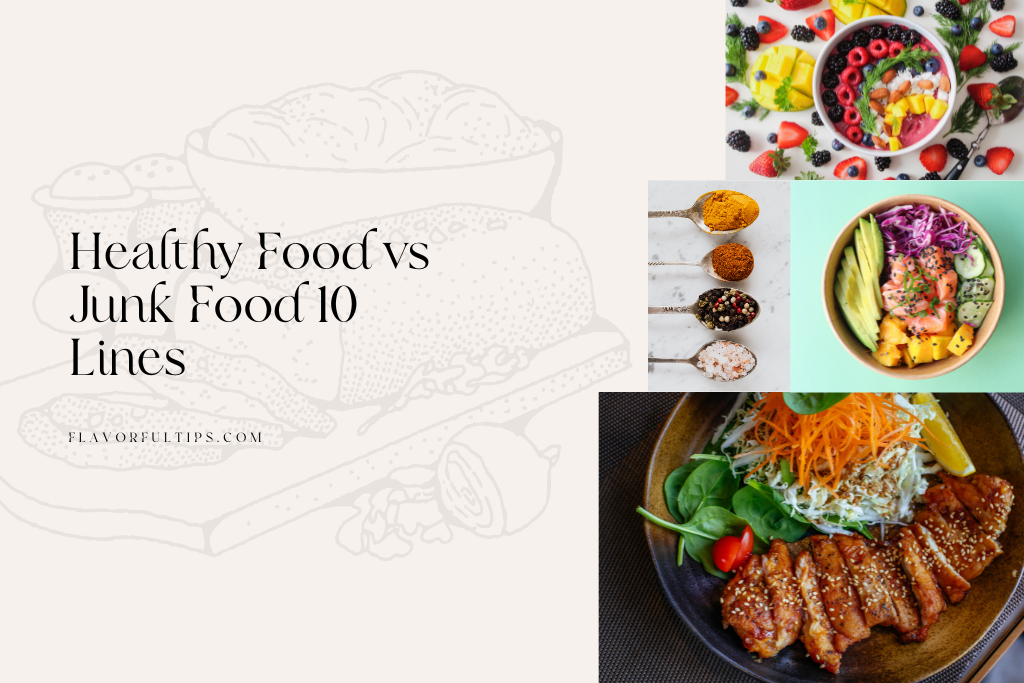The flu, short for influenza, is a common viral infection that can leave you feeling miserable. Its symptoms, including fever, chills, body aches, and fatigue, can disrupt your daily life. However, one crucial aspect of flu recovery often overlooked is nutrition. What you eat during this time can significantly impact your healing process. In this blog post, we will explore what to eat when sick with flu, as well as those to avoid. We’ll also delve into the BRAT diet, hydration, supplements, and offer a sample meal plan to guide you on your path to recovery.
Foods to Avoid: What to Eat When Sick with Flu
During the flu, it’s essential to steer clear of certain foods that can exacerbate your symptoms and slow down your recovery.
- Processed Foods: Highly processed snacks, like chips and sugary cereals, can weaken your immune system. These foods often lack essential nutrients and may contain additives that can worsen inflammation.
- Excessive Sugar: While the occasional sweet treat is fine, consuming too much sugar can suppress your immune system. Opt for naturally sweet foods like fruits instead of sugary snacks.
- Fatty and Fried Foods: Greasy, fried foods can be challenging to digest and may worsen nausea or indigestion, which are common during the flu.
| Also Read: 20 Delicious Smoothie King Recipes |
Foods to Incorporate: What to Eat When Sick with Flu
To aid in your recovery, focus on incorporating nutrient-rich foods that can help alleviate flu symptoms and boost your immune system.
- Chicken Soup: This classic comfort food is packed with nutrients, including vitamins, minerals, and protein. It can help ease congestion and soothe a sore throat.
- Herbal Teas: Teas such as chamomile, peppermint, and ginger can provide relief from symptoms like nausea and congestion. They also help keep you hydrated.
- Citrus Fruits: Oranges, lemons, and grapefruits are rich in vitamin C, which can enhance your immune system’s function. They can also help reduce the duration and severity of your symptoms.
- Ginger: Known for its anti-inflammatory properties, ginger can help ease nausea and digestive discomfort. Consider ginger tea or adding fresh ginger to your meals.
- Garlic: Garlic has natural antibacterial and antiviral properties that can help your body fight off the flu virus. Incorporate it into soups or broths for added flavor and health benefits.
- Leafy Greens: Spinach, kale, and other leafy greens are packed with essential vitamins and minerals. They support your overall health and provide the nutrients your body needs to recover.
The BRAT Diet
The BRAT diet (for What to Eat When Sick with Flu), consisting of Bananas, Rice, Applesauce, and Toast, is often recommended for those with digestive issues, including the flu.
- Bananas: They are easy to digest and provide necessary potassium, which may be depleted due to fever and sweating.
- Rice: Plain white rice is gentle on the stomach and can help control diarrhea.
- Applesauce: Applesauce provides a source of calories and is easy to eat when you have a sore throat or lack appetite.
- Toast: Toasted bread is bland but can help settle your stomach.
While the BRAT diet is helpful during the initial stages of the flu, it’s important to gradually reintroduce more diverse and nutritious foods as your symptoms improve.
Hydration
Staying hydrated is crucial when you’re sick with the flu. Fever, sweating, and respiratory symptoms can lead to fluid loss, which must be replenished. Here are some hydrating options:
- Water: Plain water is the best choice for hydration. Sip it regularly throughout the day.
- Herbal Teas: Besides offering comfort, herbal teas provide fluids without caffeine, which can dehydrate you.
- Electrolyte Drinks: These can help replace lost electrolytes and maintain proper hydration levels.
Avoid excessive caffeine and alcohol, as they can contribute to dehydration and worsen flu symptoms.
Supplements and Natural Remedies
While food should be your primary source of nutrients, supplements and natural remedies can be helpful when you’re sick with the flu.
- Vitamin C: This vitamin can boost your immune system (most considered one for What to Eat When Sick with Flu). Consider taking supplements or increasing your intake of citrus fruits.
- Zinc: Zinc is known to reduce the duration and severity of cold and flu symptoms. You can find it in supplement form or in foods like beans and nuts.
- Honey: Honey has natural antibacterial properties and can soothe a sore throat. Add it to tea or consume it plain.
- Chamomile: Chamomile tea is known for its calming effects and can help alleviate insomnia and anxiety associated with the flu.
- Always consult with a healthcare professional before starting any new supplements or natural remedies, especially if you’re taking other medications.
Sample Flu-Fighting Meal Plan
Here’s a sample meal plan for a day for What to Eat When Sick with Flu:
Breakfast
- Oatmeal topped with sliced bananas and a drizzle of honey
- Chamomile tea
Lunch
- Chicken soup with plenty of vegetables
- Whole-grain toast
- A side of ginger-infused applesauce
Snack
- Greek yogurt with a sprinkle of nuts and a few citrus segments
Dinner
- Baked salmon with a garlic and lemon marinade
- Steamed spinach
- Brown rice
Snack
- A small orange or a cup of herbal tea
Conclusion
What to Eat When Sick with Flu – proper nutrition can make a significant difference in your recovery. Focus on incorporating flu-fighting foods, staying hydrated, and consider supplements and natural remedies with caution. The BRAT diet can be helpful during the worst of your symptoms, but don’t forget to gradually reintroduce a variety of foods as you start feeling better. Most importantly, listen to your body and consult a healthcare professional if your symptoms worsen or persist.
Remember, the road to recovery starts with the first bite of nourishing, healing food. Be kind to yourself, get plenty of rest, and allow your body the time it needs to heal from the flu. With the right nutrition and self-care, you’ll be back on your feet in no time.



